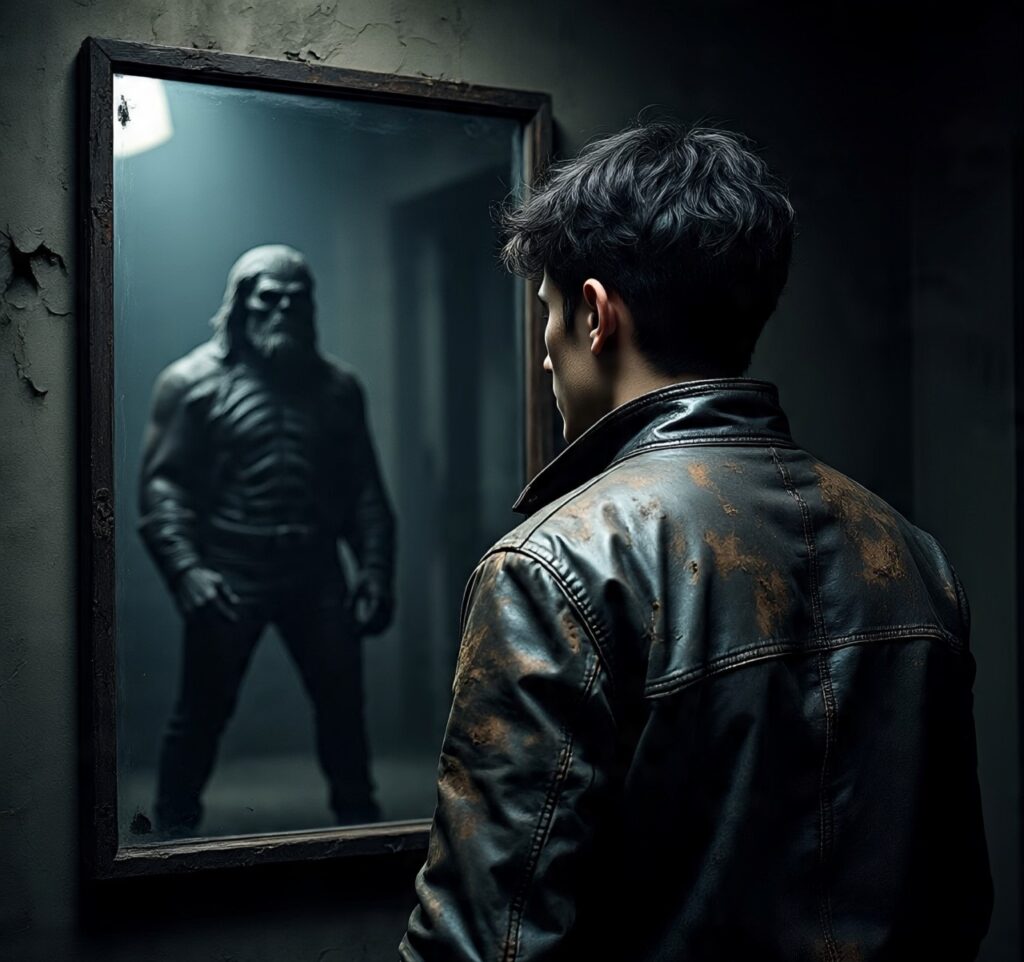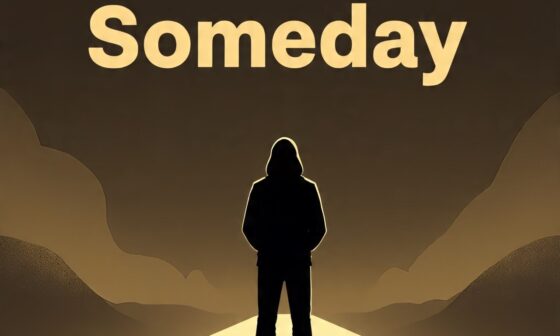Friedrich Nietzsche once said and warned: “Whoever fights monsters should see to it that he does not become a monster.” I recently heard that from seeing a movie, and not to me but I am sure to some if not many that at first glance, it feels like a warning reserved for warriors and revolutionaries, those who go toe-to-toe with evil in its most obvious forms. But the truth is, this caution reaches into everyday life, into our arguments, our activism, our disagreements, even our tweets.
Eugene Cho also put it more plainly: “Be careful not to dehumanize those you disagree with. In our self-righteousness, we can become the very things we criticize in others.”
The danger is not just the monster “out there.” It is the one slowly forming inside us when we let hate, bitterness, and pride distort our fight. To resist evil effectively, we must learn to guard our soul in the process.
The Mirror Effect: How Opposition Shapes Us More Than We Realize
Just in case you do not know, know this now; the longer you stare into something, the more it stares back at you. Nietzsche calls this “the abyss,” and it is no abstract philosophy; it is a psychological reality. When we constantly feed on anger, outrage, and contempt for what we oppose, we start to reflect it.
And that is why so many movements, even though birthed in and through justice, often end in cruelty. The oppressed becomes the oppressor; the reformer becomes the tyrant, and the critic becomes the cynic. Without realizing it, we start using the same weapons as those we fight, mockery, slander, lies, violence and then justify it because “they did it first.”

The mirror does not lie: What you behold, you eventually become.
Friedrich Nietzsche once wrote, “If you gaze long enough into the abyss, the abyss will gaze back at you.” It is a reminder that what we choose to focus on shapes who we inevitably become. The abyss is not merely a dark hole somewhere out in the cosmos; it is a metaphor for suffering, injustice, cruelty, and the unspoken emptiness that sometimes stares into the human soul. It is the accumulated weight of a world that has known war, grief, corruption, betrayal, and loss, and if we keep our eyes fixed on it, the abyss has a way of camping in us, imprinting its image upon our thoughts, our character, and our way of being.
You see, my dearest readers; life will never run short of pain, betrayal, or cruelty, and we cannot avoid them entirely, nor should we pretend they do not exist, but our gaze; what we choose to behold is one of the rare freedoms no one can take from us. In that choice lies the quiet power to decide whether we will be shaped by despair or by hope, by bitterness or by compassion, by the void or by the light.
Continue Reading: The Abyss and the Mirror: Becoming What You Behold
The Subtle Slide Into Dehumanization
Again, Eugene Cho’s words strike at the heart of this danger. In our zeal for righteousness, we can cross a line, not into truth or justice, but into dehumanization.
It starts small, and eventually we stop seeing the person and only see “the enemy.” We strip them of complexity, dignity, and worth; they are no longer someone made in the image of God; they are reduced to a caricature we can mock, dismiss, or hate. And ironically, this is the very thing we often accuse our opponents of doing, and in becoming what we despise, we prove Nietzsche right: We have let the monster we were fighting crawl inside us.
Be careful not to dehumanize those you disagree with. In our self-righteousness, we can become the very things we criticize in others. – Eugene Cho
This quote made me question my assumptions and realize how simple it is to talk about a person or an entire group of individuals as if they are the enemy and not even humans. I know that failing to listen to the other side is wrong and I’m not claiming that listening to their argument will persuade you to change your mind; in fact, it’s possible that it won’t; they are, nevertheless, human beings, and something has affected and influenced them to believe in what they do.
Continue Reading: Disagreement Without Hate
Guard Your Heart: Resisting Evil Without Losing Yourself
So how do we fight without falling? The answer is not withdrawal; it is wisdom. To resist without resembling, we must set guardrails for the soul:
- Check your heart often. Ask: Am I motivated by love for truth and justice, or by revenge, pride, and rage?
- Humanize the opponent. Disagree with ideas aggressively but remember the person is still a person, worthy of dignity, love and respect.
- Fight with different weapons. Truth, humility, patience, integrity, these are not weaknesses but strengths that outlast and beat hatred.
- Stay anchored in your values. If you compromise your integrity to win, the victory will hollow you out.
Guarding your soul and heart is not about going soft; it is about going strong without losing yourself in the process.
Have you ever felt like life keeps pulling you in different directions, some good, some not so great? So much so that it starts to create a void in your heart, builds up a burden and even starts to feel like physical pain, almost like your bleeding from your chest; I think there is a medical term for that, I can’t bring myself to remember at the moment, but the truth is, with a certain level of conviction, everything we do, say, and even believe starts in the heart. That’s why Proverbs 4:23 gives us this powerful instruction:
Guard your heart above all else, for it determines the course of your life. – Proverbs 4:23 NIV
As we always do, let’s think about it together; your heart is like the control center of your life. What you let in affects your thoughts, decisions, and even your future. So, how do we protect it from negativity, heartbreak, and distractions while keeping it open to love, joy, and faith?
And so my next question to you is this: How does the heart determine the course of one’s life?
Continue Reading: Guard Your Heart Above All Else
Read Also: The Tongue as The Test of Character: Lessons From James 3:2
Read Also: The Prisoner’s Dilemma: Why Trust Is the Foundation of Society
Read Also: The Paradox of Hate and Bitterness
Conclusion
Evil is not only defeated by strength; it is defeated by not becoming its reflection. The real victory is not just changing the world “out there,” but also very very much about preserving the integrity of your heart “in here.”
Friedrich Nietzsche’s warning and Eugene Cho’s reminder converge on one truth: Fighting monsters is inevitable, but becoming one is not. You are not only called to resist darkness, you are called to remain light in the midst of it.
14- You are the light of the world. A town built on a hill cannot be hidden.
15- Neither do people light a lamp and put it under a bowl. Instead they put it on its stand, and it gives light to everyone in the house.
16- In the same way, let your light shine before others, that they may see your good deeds and glorify your Father in heaven.
Matthew 5:14-16 NIV





